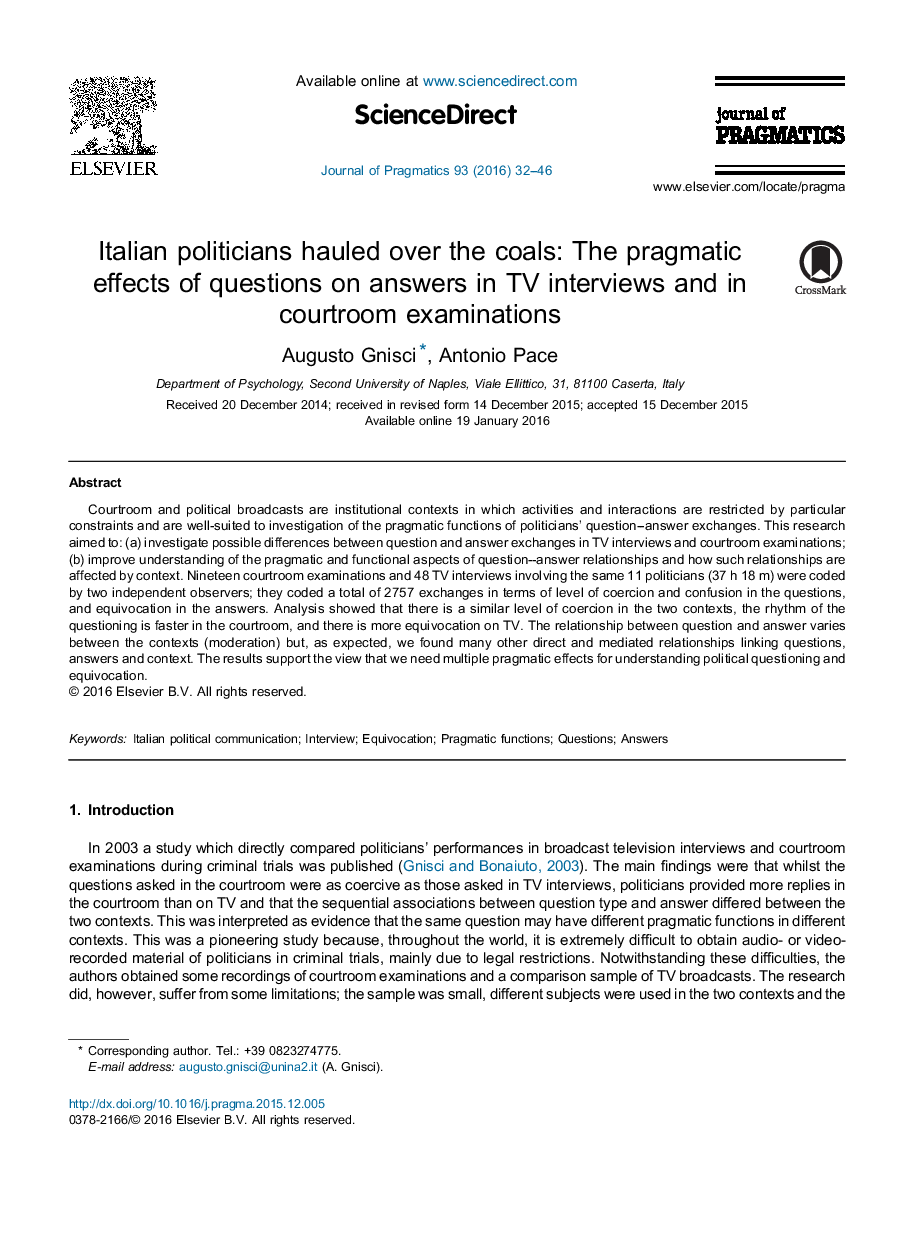| Article ID | Journal | Published Year | Pages | File Type |
|---|---|---|---|---|
| 932508 | Journal of Pragmatics | 2016 | 15 Pages |
•The political communication in two contexts (TV vs. the courtroom) was compared.•Two observers coded questions by interviewers and answers by politicians.•The coerciveness of the questions was similar in the two contexts.•The equivocation of the answers was higher on TV.•Evidence of direct, moderated and mediated effects among questions, answers and context.
Courtroom and political broadcasts are institutional contexts in which activities and interactions are restricted by particular constraints and are well-suited to investigation of the pragmatic functions of politicians’ question–answer exchanges. This research aimed to: (a) investigate possible differences between question and answer exchanges in TV interviews and courtroom examinations; (b) improve understanding of the pragmatic and functional aspects of question–answer relationships and how such relationships are affected by context. Nineteen courtroom examinations and 48 TV interviews involving the same 11 politicians (37 h 18 m) were coded by two independent observers; they coded a total of 2757 exchanges in terms of level of coercion and confusion in the questions, and equivocation in the answers. Analysis showed that there is a similar level of coercion in the two contexts, the rhythm of the questioning is faster in the courtroom, and there is more equivocation on TV. The relationship between question and answer varies between the contexts (moderation) but, as expected, we found many other direct and mediated relationships linking questions, answers and context. The results support the view that we need multiple pragmatic effects for understanding political questioning and equivocation.
